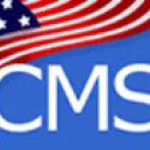- Отрасли: Government
- Number of terms: 15199
- Number of blossaries: 0
- Company Profile:
The federal agency that runs the Medicare program. In addition, CMS works with the States to run the Medicaid program. CMS works to make sure that the beneficiaries in these programs are able to get high quality health care.
A number that corresponds to one of the equal divisions of the range of a variable in a given sample and that characterizes a value of the variable as not exceeded by a specified percentage of all the values in the sample. For example, a score higher that 97 percent of those attained is said to be in the 97th percentile.
Industry:Insurance
A method of dialysis in which blood from a patient's body is circulated through an external device or machine and then returned to the patient's bloodstream. Such an artificial kidney machine is usually designed to remove fluids and metabolic end products from the bloodstream by placing the blood in contact with a semi-permeable membrane, which is bathed on one side by an appropriate chemical solution, referred to as dialysate.
Industry:Insurance
Is the organization with which the State contracts to evaluate the care provided to Medicaid managed eligibles. Typically the EQRO is a peer review organization. It may conduct focused medical record reviews (i.e. Reviews targeted at a particular clinical condition) or broader analyses on quality. While most EQRO contractors rely on medical records as the primary source of information, they may also use eligibility data and claims/encounter data to conduct specific analyses.
Industry:Insurance
Fraud: To purposely bill for services that were never given or to bill for a service that has a higher reimbursement than the service produced. Abuse: Payment for items or services that are billed by mistake by providers, but should not be paid for by Medicare. This is not the same as fraud.
Industry:Insurance
A period of time when your employer group health plan will pay first on your health care bills and Medicare will pay second. If your employer group health plan doesn't pay 100% of your health care bills during the coordination period, Medicare may pay the remaining costs.
Industry:Insurance
A national administrative code set that identifies the reasons for any differences, or adjustments, between the original provider charge for a claim or service and the payer's payment for it. This code set is used in the X12 835 Claim Payment & Remittance Advice and the X12 837 Claim transactions, and is maintained by the Health Care Code Maintenance Committee.
Industry:Insurance
A type of managed care organization. In return for a monthly premium, plus any applicable deductible or co-payment, all or most of an individual's physician services will be provided by the HCPP. The HCPP will pay for all services it has arranged for (and any emergency services) whether provided by its own physicians or its contracted network of physicians. If a member enrolled in an HCPP chooses to receive services that have not been arranged for by the HCPP, he/she is liable for any applicable Medicare deductible and/or coinsurance amounts, and any balance would be paid by the regional Medicare carrier.
Industry:Insurance
Any compensation arrangement at any contracting level between an MCO and a physician or physician group that may directly or indirectly have the effect of reducing or limiting services furnished to Medicare or Medicaid enrollees in the MCO. MCOs must disclose physician incentive plans between the MCO itself and individual physicians and groups and, also, between groups or intermediate entities (e.g., certain IPAs, Physician-Hospital Organizations) and individual physicians and groups.
Industry:Insurance
Manual transmittals announce policy revisions. National coverage determinations are announced in transmittals for the Medicare National Coverage Determinations Manual. Changes to Local Medical Review Policy are announced in transmittals for the Medicare Program Integrity Manual.
Industry:Insurance
A monthly premium paid by or on behalf of individuals who wish for and are entitled to voluntary enrollment in the Medicare HI program. These individuals are those who are aged 65 and older, are uninsured for social security or railroad retirement, and do not otherwise meet the requirements for entitlement to Part A. Disabled individuals who have exhausted other entitlement are also qualified. These individuals are those not now entitled but who have been entitled under section 226(b) of the Act, who continue to have the disabling impairment upon which their entitlement was based, and whose entitlement ended solely because the individuals had earnings that exceeded the substantial gainful activity amount (as defined in section 223(d)(4) of the Act).
Industry:Insurance
